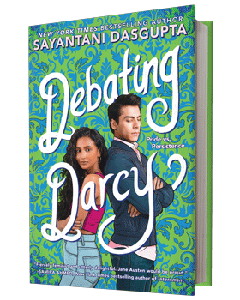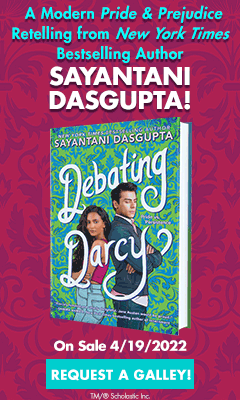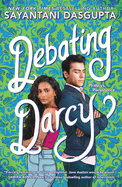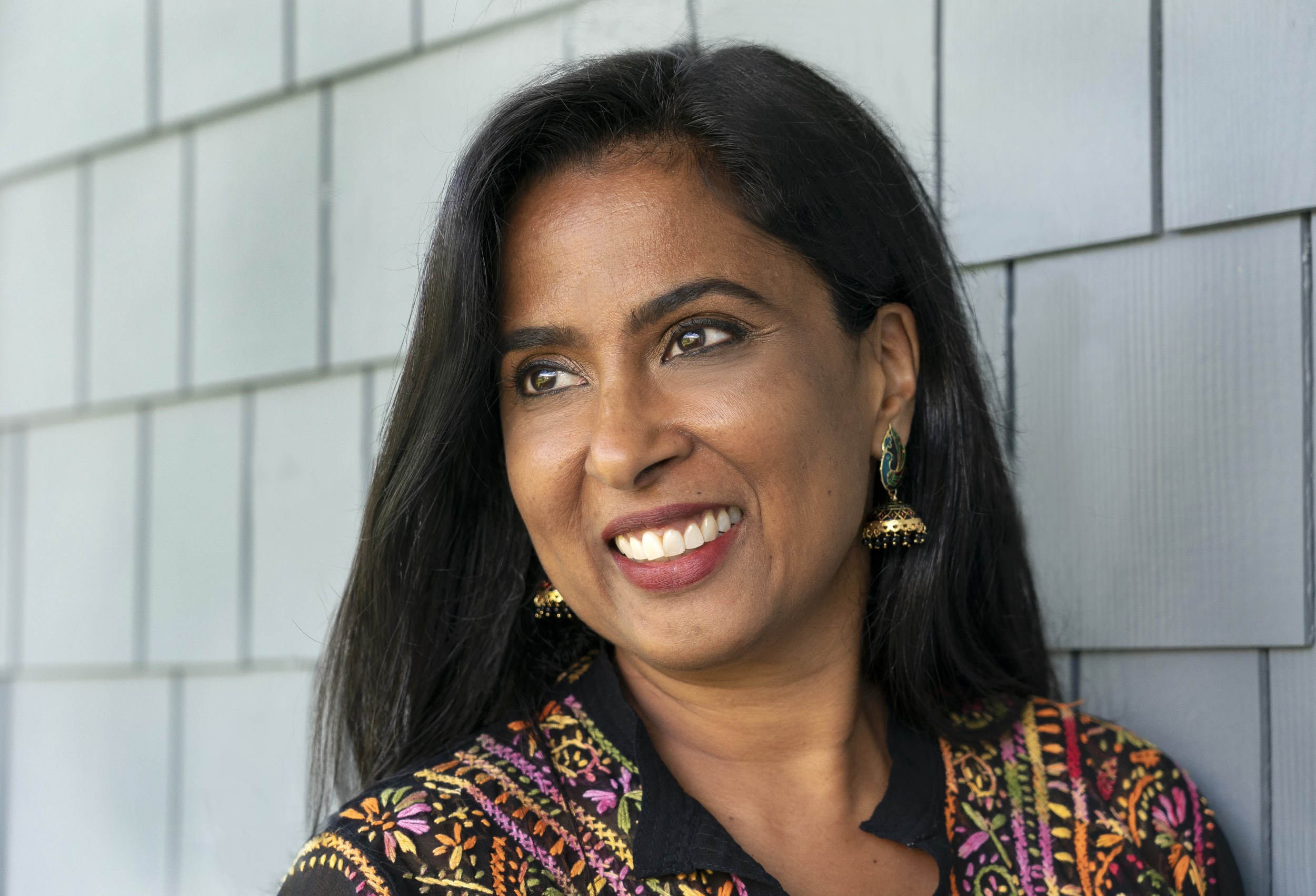Debating Darcy
by Sayantani DasGupta
Debating Darcy, a retelling of Pride and Prejudice from bestselling author Sayantani DasGupta (The Serpent's Secret), is set in the highly competitive world of high school speech and debate tournaments--an ideal vehicle for this refreshing interpretation of the beloved comedy of manners. DasGupta puts her own twist on the classic's themes--gender, class, family--while also paying homage to the original text.
The first time 16-year-old Leela Bose sees Firoze Darcy, she's standing atop a high school cafeteria table singing show tunes with her teammates at a speech and debate competition. To Leela's chagrin, the "suited and booted" (as her cousins in India would say) Desi boy from the prestigious Netherfield Academy is not impressed, and tells his friend Bingley that Leela is "certainly not beautiful enough to tempt me." This insult instantly transports Bengali American Leela back to a time when schoolyard bullies mocked her with "pseudo Native American 'woo-woo-woos' " and complained she "smelled like curry." Her shame quickly turns to anger, and she decides she quite detests that "pile of prideful pomposity."
Unfortunately, Leela will be seeing a lot more of Darcy now that his private school has joined the state speech and debate league and he'll be competing against her public school teammates in debate. Not to mention that her best friend, Jay, is drooling over Darcy's friend Bingley, and her teammate Tomi would do anything to get into the university where Darcy's mom is president. As Leela and Darcy continue to cross paths, Leela finds Darcy to be "cold, and proud. Like a robot, hard to figure out," but their interactions are passionate and heated, whether they're discussing the merits (or lack thereof) of Hamilton or the inauthenticity of speech categories. Then there's Bengali American Jishnu Waddedar, "uncomplicated, charming and easy"--everything Darcy isn't--who has his own bad history with Darcy and aims to humiliate him in competition. Loaded with Jishnu's vengeance and Darcy's constant criticisms of speech events, Leela decides to quit speech and try debate, both to prove to Darcy she can do it and to put him in his place while she's at it.
When Leela dips her toe into the "old-fashioned boys' club" of debate, she quickly finds that the odds are stacked against her--sexist comments from judges and male competitors and racial microaggressions are the norm. Add to that Darcy's confusing behavior as of late (watching a movie she mentioned so he could quote it to her, buying her secret expensive desserts) and Leela wonders if she made a mistake. About debate, definitely, but maybe about Darcy, too. Leela will have to come to terms with her hurt pride and chronic misjudgment of people's character if she wants to have any success in debate or love.
DasGupta uses the ultra-competitive world of high school speech and debate to help drive Leela and Darcy's story. This setting allows space for fervent arguments between the enemies-to-lovers and lively discussions among characters about "liberatory education," institutionalized sexism and the "sexist clothing industrial complex." But it is also a stage for personal transformations, such as Leela's from someone who hides behind other people's words in "humorous interpretation" speeches to a debater who abandons her "well-worn competition suit" and lets her locks do their "natural, ringlet-y thing" as she uses her own voice to argue against elitism and privilege.
Just as class, gender and family are key themes in Pride and Prejudice, DasGupta successfully incorporates them into her novel while also introducing racism and colorism. She uses the male-dominated activity of high school debate to show that, even 200 years later, women are still expected to act a certain way, with Leela and her teammate Mary berated by judges for their clothing choices, their "shrillness" and their "aggressive" natures. (Even Leela accidentally plays into the sexist double standard and polices her younger female teammates' behavior around their male competitors.) Through Leela and Darcy's arguments and debate topics, DasGupta explores class issues, such as whether standardized testing for college admissions is an elitist practice, and the experiences of public school kids versus privately educated ones ("Never mind we actually had to fundraise... unlike some people who have everything handed to them on a silver platter"). She effectively explores the theme of family through Leela's "ramshackle, completely embarrassing public high school forensics team," which includes "a crafter, an actor, a rule-abider, a goth, and two incorrigible dingbat flirts" as well as two "slightly flaky coaches." Together, this group functions as a found family for Leela, who has never felt like she fit in, whether in her own Bengali American community, where people say she has a "pretty face... for a dark girl," or in ballet class, where all the other little girls' "nude tights and shoes actually matched their skin."
As modern as Debating Darcy is, DasGupta deftly weaves in nods to the original, through quotes ("How much sooner one tires of anything than of a book") and in the "invisible pattern of movement" between Darcy and Leela that compares their arguing to "turns around a ballroom." Debating Darcy is a provocative, humorous and relevant modernization of the classic that inspired it. --Lana Barnes






